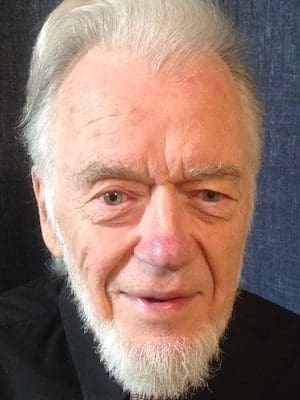Anti-Semitism has a long and sordid existence in world history.
As is the case with all discriminatory language and actions, anti-Semitism cannot be condoned no matter when or by whom it is expressed.
But neither can charges of anti-Semitism be used as a means to stifle legitimate criticism of the nation of Israel.
As has been widely covered in the news media over the past few weeks, U.S. Rep. Ilhan Omar (D-Minnesota) has been accused of making anti-Semitic remarks that have upset many members of Congress, among others, including some Democrats.
On March 17, 2019, an op-ed piece by Omar was posted on The Washington Post’s website; her clarifying earlier statements as well as emphasizing the imperative for peace and justice in Israel/Palestine are most commendable.
Some understood from the beginning, though, that Omar’s voicing criticism of Israel’s treatment of the Palestinians was not being anti-Semitic at all.
According to Merriam-Webster, “anti-Semitic” means “hostility toward or discrimination against Jews as a religious, ethnic or racial group.”
There was nothing in Omar’s statements about the Jews. She spoke only with reference to the nation of Israel and its supporters.
Of course, it clouds the picture that Israeli Prime Minister Benjamin Netanyahu has recently publicly stated that Israel “is the national state, not of all its citizens, but only of the Jewish people” – in spite of the fact that about 20 percent of the population are Arabs.
President Jimmy Carter had considerable experience on matters directly connected to the Middle East.
He made a vital contribution to implementing the 1978 Camp David accords between Israel and Egypt, which resulted in Menachem Begin of Israel and Anwar Sadat of Egypt being awarded the 1978 Nobel Peace Prize.
More than 25 years later, Carter wrote a highly controversial book, “Palestine: Peace Not Apartheid” (2006).
Carter and his pro-Palestine stance were castigated not only by many Jewish people but also by some Democrats (such as Nancy Pelosi) who were/are not Jews – and by many conservative Christians.
My wife, June, and I read Carter’s book in 2007 and were convinced that his criticism of Israel was correct, but certainly not anti-Semitic.
A much-maligned Jewish group goes by the name Jewish Voice for Peace (JVP). The JVP, founded in 1996, has, along with some other Jewish groups and many individual Jews, publicly voiced strong support for Omar.
JVP’s mission statement (see here) clearly states that JVP members “are inspired by Jewish tradition to work together for peace, social justice, equality, human rights, respect for international law and a U.S. foreign policy based on these ideals.”
What about BDS?
As perhaps most of you know, a movement known as BDS (boycott, divest, sanction) is a strong opponent of Israel’s treatment of the Palestinian people. I first heard about BDS in 2015 when I was in Israel.
I ended my June 30, 2015, blog article, “The Plight of the Palestinians,” with a positive introduction of BDS.
I was disappointed, but not particularly surprised, when I was reprimanded by a local Jewish rabbi whom I considered my friend.
Omar, who was born in 1981, has said that her grandfather taught her about the history of racial oppression in South Africa.
Consequently, she has compared Israel to an “apartheid regime,” which is what Carter did, in effect, in his 2006 book.
In a 2017 speech, Omar said she remembered her grandfather talking about apartheid in South Africa and how some people “decided that they were going to engage in boycotts of that government.”
And, as we know, by 1994 apartheid had ended in South Africa.
It seems to me that the BDS movement was organized for the same sort of purpose as the anti-apartheid activities in opposition to South Africa’s policies.
So, I am not critical of Israel and in favor of the BDS movement because I have negative, prejudicial attitudes toward Jewish people.
My criticism of Israel is because of that nation’s ongoing and patently unjust treatment of Palestinians.
Editor’s note: A version of this article first appeared on Seat’s blog, A View from this Seat. It is used with permission.
A missionary to Japan from 1966-2004, he is both professor emeritus of Seinan Gakuin University and pastor emeritus of Fukuoka International Church.


